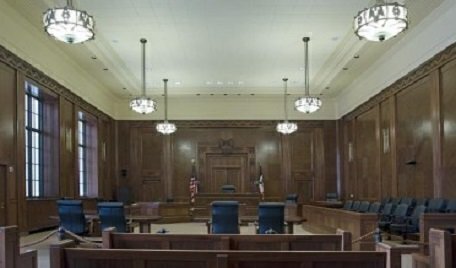A federal judge, the first in history to rule on the meaning of the Constitution’s ban on gifts and other compensation for the President (other than salary), used that interpretation on Thursday to dismiss a lawsuit against President Trump and his businesses.
 While the judge ruled that the case could not proceed because the challengers could not show that they had been directly harmed by Trump’s business interests or that their lawsuit could cure any harm they did suffer, that result was made necessary by how he interpreted the two so-called “emoluments” clauses in the Constitution’s Articles I and II.
While the judge ruled that the case could not proceed because the challengers could not show that they had been directly harmed by Trump’s business interests or that their lawsuit could cure any harm they did suffer, that result was made necessary by how he interpreted the two so-called “emoluments” clauses in the Constitution’s Articles I and II.
The Article I clause provides that the president get a salary but bars the occupant of the office from receiving any gift or compensation from a government of any U.S. state. The Article II clause bars the president from accept any gift or other financial or property interest from any foreign government – unless Congress consents.
Because of the judge’s quite-narrow reading of those two clauses, it seemed highly unlikely – if that ruling withstands a planned appeal by the challengers – that anyone in private life could successfully sue any president for alleged violations of those clauses. This was a rather curious prospect, especially since the judge insisted that he was not ruling, one way or the other, on whether Trump had violated either clause.
The ruling by U.S. District Judge George B. Daniels of New York City was the first of three decisions that are expected in three entirely separate lawsuits in different courts against Trump, each claiming that he has received unconstitutional “emoluments” by continuing to receive financial benefits from his far-flung hotel and golf course business – named the Trump Organization.
Judge Daniels dismissed the lawsuit filed by Citizens for Responsibility and Ethics in Washington, a private advocacy organization that seeks to fight corruption and money in politics, along with operators of hotels or restaurants that claimed they compete with Trump hotels and restaurants for business.
The lawsuit sought a ruling that Trump had violated the clauses by taking financial benefits from his company after his properties were used commercially – sometimes by foreign governments – by customers seeking to curry favor with Trump as America’s Chief Executive.
Judge Daniel did not rule on any of those claims, since he ordered the case stopped before getting to them. But what he said along the way toward the final decision to dismiss provided history’s first judicial interpretations of both the domestic and foreign emoluments clauses. Those readings appeared to go a long way toward preventing any private group or individual from successfully seeking to sue to enforce one or both of those clauses.
As to the foreign emoluments clause, the judge ruled flatly that it can only be enforced by Congress, and not by the courts. Since the clause assigns Congress the task of deciding whether to allow a president to receive any gift or compensation from a foreign government, it is up to Congress to police that potential activity, the judge declared.
He implied that the courts might have a role to play if, someday, a conflict arose between Congress and a president over a claimed violation of that clause and the courts were called upon to sort that out, but that scenarios would not appear to leave any opportunity for private enforcement of that clause.
As to both of the clauses, Judge Daniel said that neither protects business interests from commercial competition from a president’s businesses. “Nothing in the text or history of the Emoluments Clauses suggests that the Framers intended these provisions to protect anyone from competition,” the judge wrote.
And, even if the rival business operators could show they had been harmed while operating in competition with presidential businesses, judges would not be able to remedy that harm because they could not determine what forces in that market had causes their commercial injury, the judge concluded.
The decision that the CREW organization and the rival business operators lacked “standing” to sue Trump was, itself, a constitutional conclusion, because Article III limits the power of federal courts to decide only live cases or controversies, and the courts have said that means no lawsuit can go ahead unless there is proof of injury, proof that the injury was caused by the party that had been sued, and proof that a victory in court would remedy that injury.
Judge Daniel did not break any new ground in what Article III means on the question of “standing” to sue, but it clearly was a precedent-setting interpretation of just what the two emoluments clauses do, and do not, cover.
An appeal in the case will go to the U.S. Court of Appeals for the Second Circuit, based in New York City.
Two other emoluments clause cases are moving forward in other federal trial courts – one filed by the state attorneys general in Maryland and the District of Columbia, the other by several Democratic members of Congress. The judges in those cases are not required to follow the decision by Judge Daniels in the CREW case.







